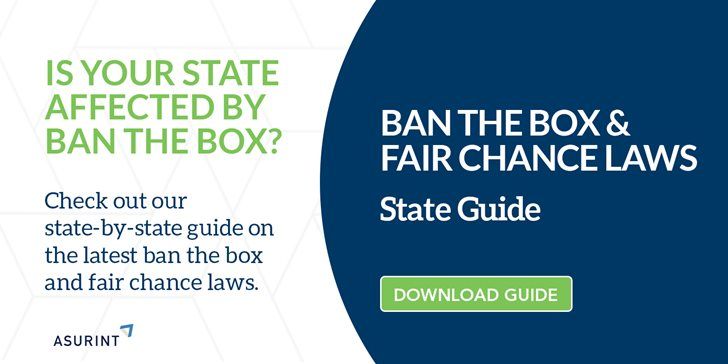Fair Chance Act Bans the Box for Federal Government
1 min read
Written By
Kelly Uebel
Published
Jan 16, 2020
At the end of 2019, the federal government came together in a rare bipartisan moment passing the Fair Chance Act which was signed into law by President Trump on December 20th via S. 1790, the “National Defense Authorization Act for Fiscal Year 2020”. The Fair Chance Act will go into effect two years after the law’s enactment.
The Fair Chance Act will apply to the federal government (including all three branches) and federal contractors. With respect to the federal government, the criminal history question may only be asked after a candidate is extended a conditional offer unless consideration of criminal history information prior to a conditional offer is required by law. With respect to federal contractors, applicants for positions related to work under a federal contract may not be asked about criminal history until after receiving a conditional offer as well unless such information is required by law.
The Director of the Office of Personnel Management is responsible for developing and implementing a policy to assist with compliance, along with establishing the procedures for individuals to follow in order to lodge a complaint.
You might also like

Legislative Sessions Heating Up: Fair Chance Laws Remain Focus
State legislatures have been actively addressing a range of key issues, with fair chance laws emerging as a particularly popular focus.

New Mexico Senate Introduces Employment Protections for Medical Marijuana Users
The New Mexico Senate introduced SB 129, “Adverse Employment Action & Cannabis”.

Third Circuit Finds Pennsylvania’s Criminal Records Law Applies to Self-Disclosures
Employers hiring in Pennsylvania should take note of a recent court ruling from the U.S. Court of Appeals for the Third Circuit.


